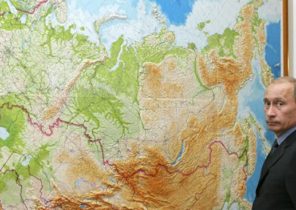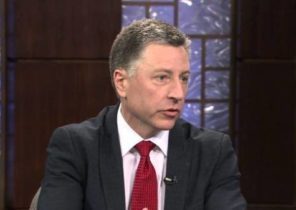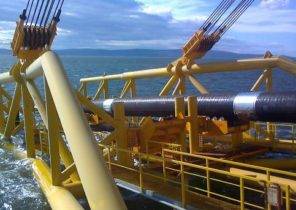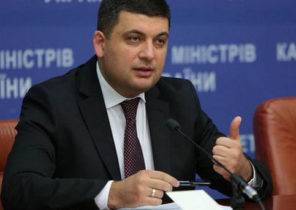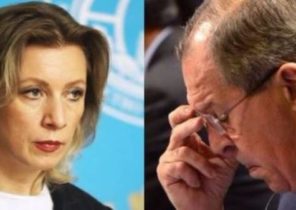
“The revolutionary must penetrate everywhere, into all the layers, top and middle, in a merchant’s shop, in Church, in the manor house, in the world of bureaucratic, military, in literature, in the third Department (tsarist secret police) and even in the Winter Palace,” wrote Sergei Nechaev, “Catechism of a revolutionary”.
During those 300 years that the Romanov dynasty ruled over Russia, Palace coups, through which the monarch was replaced by another, related, was the most effective means of political change. In the XVIII century a series of kings used the military support to displace the current ruler; Catherine the Great during one of perhaps the most famous Palace coup in 1762 overthrew her own husband, Peter III. Her son Paul was murdered in 1801 dissatisfied with the court after he was deposed with the consent if not with the complicity of his son and successor Alexander I.
So it is this long and bloody history in January 1917, evoked fears that will happen another Palace coup Romanov, the center of which will stand Nicholas II. The murder of Rasputin, a close adviser to the king, by the hands of his nephew and cousin heralded the onset of political chaos. The conspirators hoped that the elimination of Rasputin forced Nicholas to re-apply for advice to relatives and the Russian political elite.
Instead, the gap between Nicholas and his family only increased. The king in disgust, took the news about participation of his relatives in the murder and sent both of St. Petersburg. 11 January (29 December on the calendar used then in Russia), the king received a letter signed by 16 relatives, where he begged to cancel the decree that his cousin, Dmitri was sent to the Persian front, where Russian troops fought against the Ottoman Empire during the First world war. Nicholas returned the letter with the entry: “no one has the right to kill. I know that many a guilty conscience, as not one Dmitri Pavlovich was involved. I am surprised at your reference to me”.
Other members of the family of Nicholas declined to comment on the murder of Rasputin, but begged the king to govern more efficiently. Requirements of the Russian elite was conservative: to appoint Ministers who have the support of the Duma, a representative Assembly, established by the Tsar in 1905; the king — to live in the capital, St. Petersburg, and not in the military headquarters in Mogilev, where he spent most of the time once took personal command of the Russian army; and to remove an unpopular Empress Alexandra from further interference in the Affairs of state.
The king’s unwillingness to carry out even these modest reforms had led to the fact that there was talk of a coup. After one particularly disappointing an audience with the king cousin of Nicholas and his son-in-law wrote to his brother, the historian, who was also among those who signed the petition about forgiveness Dmitry: “Either we sit idly by and expecting humiliation of Russia, or taken heroic measures… People who love Russia, was at a crossroads and don’t know what to do; for the first time, we have to ask ourselves how connected we are given the oath. In General, it is a nightmare from which I do not see the output”.
To prominent politicians and diplomats heard rumors about the planned “Uprising of the great princes”. There have been suggestions that Nicholas as the ruler of a country or of Regent of his 12-year-old patient with hemophiliac son Alexei will replace one of his relatives. However, it was unclear who the members of the Imperial family would want to lead a Palace coup. Attempts to involve the Duma was not successful. When the aunt of the king at dinner, said the Chairman of the Duma that “the Empress must be destroyed,” he said, “Let me pretend this conversation never happened,” reminding her that his oath obliges to report such to the king.
Russia’s allies in the First world war, Britain and France were concerned about the political turmoil on the Eastern front. January 13 (New year’s eve according to the old Russian calendar) the British Ambassador George Buchanan (George Buchanan) met with Nicholas and tried to convince him to appoint a Prime Minister who has the support of the Duma and the entire nation. Nikolai said, “do I Have to regain the trust of his people or the people must restore mine?” The French Ambassador Maurice Paleologue (Maurice Paleologue) drew Parallels with the situation of Louis XVI and Marie Antoinette before the French revolution. Both politicians agreed that Nicholas, it seemed, was completely in the dark about how shaken his authority.
However, the concern of the Russian elite was a trifle compared with the discontent growing among the workers of St. Petersburg and Moscow, which wanted an immediate solution to the problems with bread and fuel, exacerbated during particularly cold winter of 1916-1917. That eventually escalated into full-working rebellion, is rooted in the popular revolutionary movement, which dealt the grandfather of Nicholas II, Alexander II since the abolition of serfdom in 1861. But the generation of young workers and students, these reforms seemed too little and too late, so we followed the call for violent revolution.
These early folk movement was especially influenced by the famous Russian authors. For example, the Manifesto of Sergey Nechayev 1869 “Catechism of a revolutionary” — attracted the attention of several generations of radicals its unconditional commitment to the revolution, a novel by Ivan Turgenev “Fathers and children” studied the differences between the older generation of reformers and the young generation of revolutionaries.
For most Russian, the most striking manifestation of these new ideas was the murder of the Tsar bomb, which he threw into the carriage a member of the revolutionary organization Narodnaya Volya in 1881. Nicholas II was 13 years old when he stood at the deathbed of his grandfather. The subsequent turn of his father Alexander III from reform to reactionary program of “Orthodoxy, autocracy and nationality” has left a strong imprint on the ideology of son. Repression of Alexander III did not stop the revolutionary activity. The old revolutionaries of “Narodnaya Volya” has contributed to the founding of the party of Socialists-revolutionaries, which then in 1903 came the Bolsheviks, now a key faction.
The growth of these revolutionary movements occurred on the background of urbanization and industrialization in Russia. In 1905, two years later, more than 3 thousand workers, angered by poor working conditions, went to the Winter Palace in St. Petersburg, demanding to raise salaries, to make the factory safer and to reduce the working day. Nicholas, who had been in power just over a decade, was not in residence, but his troops began to shoot into the crowd, killing at least 132 people and injuring hundreds. The violence has damaged the image of the king as the protector of the people and led to months of unrest that lasted as long as the king reluctantly agreed to the establishment of the Duma.
This massacre, called “Bloody Sunday”, became the trial balloon in the struggle for workers ‘ rights. During the 12th anniversary of this event, when Nicholas II lost support of the elites, 145 thousand Russians took to the streets, not expecting more that the king would solve their problems. Protesters hung red flags and banners with the words “Down with the Romanovs”.
As for the Bolsheviks, who was not yet a major political force, they were are pessimistic about all this revolutionary fervor with regard to real political change, not to mention revolution of the workers. In the same January, during a lecture to Swiss socialist 46-year-old Vladimir Lenin said: “We, the older generation probably won’t live to see the decisive battles of the future revolution.” His cautious adherence to the “revolutionary defeatism” is not shared by all his comrades.
The party leadership was deeply divided. In early 1917 in Russia there were only 500 supporters of the Bolsheviks, including Joseph Stalin, who at the end of 1916 he was drafted into the army. The Bolshevik networks often consisted of a handful of revolutionaries.
Exiled Bolsheviks, most notably Leon Trotsky, who arrived in new York on 13 January 1917, focused on international socialist revolution. Those who settled in Russia and often lived for years in Siberia, chose to narrow the focus to problems of Russia. Lenin at the time, wrote that the First world war was “a war of two big robbers, who are arguing with each other about who of them will Rob and suppress more countries in the world,” and hoped that Russia would withdraw from the hostilities.
By this time a hundred years ago, it was clear that the Russian Empire vague and uncertain future. The riots stirred up the working class and among the ruling elite is also growing discontent. After a couple of weeks there have been popular uprising, known as the February revolution, which eventually led to the end of the tercentenary of the Romanov dynasty in Russia. Decisive battles of the future revolution will happen faster than was Lenin.
